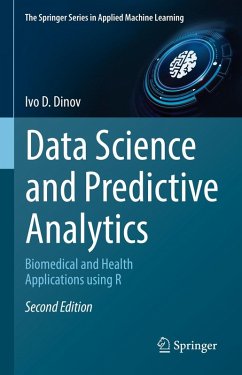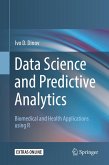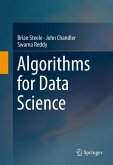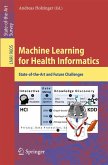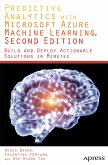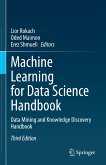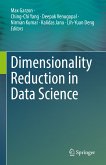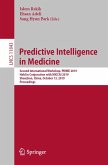Complementary to the enormous challenges related to handling, interrogating, and understanding massive amounts of complex structured and unstructured data, there are unique opportunities that come with access to a wealth of feature-rich, high-dimensional, and time-varying information. The topics covered in this textbook address specific knowledge gaps, resolve educational barriers, and mitigate workforce information readiness and data science deficiencies. Specifically, it provides a transdisciplinary curriculum integrating core mathematical foundations, modern computational methods, advanced data science techniques, model-based machine learning (ML), model-free artificial intelligence (AI), and innovative biomedical applications.
The book's fourteen chapters start with an introduction and progressively build the foundational skills from visualization to linear modeling, dimensionality reduction, supervised classification, black-box machine learning techniques, qualitative learning methods, unsupervised clustering, model performance assessment, feature selection strategies, longitudinal data analytics, optimization, neural networks, and deep learning. Individual modules and complete end-to-end pipeline protocols are available as functional R electronic markdown notebooks. These workflows support an active learning platform for comprehensive data manipulation, sophisticated analytics, interactive visualization, and effective dissemination of open problems, current knowledge, scientific tools, and research findings.
This Second Edition includes new material reflecting recent scientific and technological progress and a substantial content reorganization to streamline the covered topics. Featured are learning-based strategies utilizing generative adversarial networks (GANs), transfer learning, and synthetic data generation. There are complete end-to-end examples of ML/AI training, prediction, and assessment using quantitative, qualitative, text, and imaging datasets.
This textbook is suitable for self-learning and instructor-guided course training. It is appropriate for upper division and graduate-level courses covering applied and interdisciplinary mathematics, contemporary learning-based data science techniques, computational algorithm development, optimization theory, statistical computing, and biomedical sciences. The analytical techniques and predictive scientific methods described in the book may be useful to a wide spectrum of readers, formal and informal learners, college instructors, researchers, and engineers throughout the academy, industry, government, regulatory and funding agencies.
Dieser Download kann aus rechtlichen Gründen nur mit Rechnungsadresse in A, B, BG, CY, CZ, D, DK, EW, E, FIN, F, GR, HR, H, IRL, I, LT, L, LR, M, NL, PL, P, R, S, SLO, SK ausgeliefert werden.
"The book under review is composed as a thorough textbook-like collection of theoretical details and examples spanning fourteen chapters of mathematical background and classic and modern data science and machine learning approaches. Each chapter is significantly enhanced with practice problems and case studies which underline both corner cases and particularities of the presented methods." (Irina Ioana Mohorianu, zbMATH 1542.68001, 2024)
Es gelten unsere Allgemeinen Geschäftsbedingungen: www.buecher.de/agb
Impressum
www.buecher.de ist ein Internetauftritt der buecher.de internetstores GmbH
Geschäftsführung: Monica Sawhney | Roland Kölbl | Günter Hilger
Sitz der Gesellschaft: Batheyer Straße 115 - 117, 58099 Hagen
Postanschrift: Bürgermeister-Wegele-Str. 12, 86167 Augsburg
Amtsgericht Hagen HRB 13257
Steuernummer: 321/5800/1497
USt-IdNr: DE450055826
Bitte wählen Sie Ihr Anliegen aus.
Rechnungen
Retourenschein anfordern
Bestellstatus
Storno

